Share
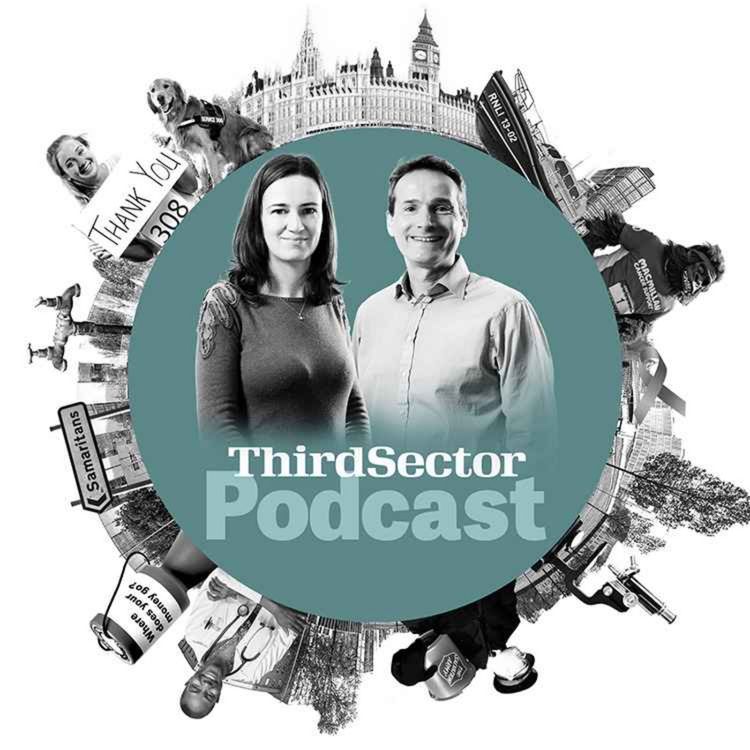
Third Sector
Michelle Mitchell on innovation at Cancer Research UK
Lucinda Rouse and Andy Ricketts are joined by Michelle Mitchell, chief executive of Cancer Research UK, to discuss the charity’s approach to fundraising, supporter engagement and advocacy.
Michelle provides insight into the charity’s ongoing data and digital transformation programme: a major investment that aims to personalise supporter engagement and raise the systems surrounding it to the same level as the world-leading research funded by CRUK.
She stresses the importance of promoting innovation and experimentation to deliver the impact articulated in a clear organisational strategy.
Also in the episode, Andy talks about Third Sector’s latest Charity Pay Study, which identifies and ranks the sector’s highest earners using data drawn from charities’ accounts.
Do you have stories of people whose lives have been transformed for the better thanks to your charity? If so, we’d like to hear them! All it takes is a short voice message to be featured on this podcast. Email lucinda.rouse@haymarket.com for further information.
Tell us what you think of the Third Sector Podcast! Please take five minutes to let us know how we can bring you the most relevant, useful content. To fill in the survey, click here.
More episodes
View all episodes

A whistlestop AI tour for small charities
30:04|Andy Ricketts and Dami Adewale are joined by John Fitzgerald, digital evolution project manager at the Scottish Council for Voluntary Organisations.John describes some of the easy-to-use AI tools that can improve efficiency in working life and shares examples of charities that are already employing them effectively.He warns of data privacy issues associated with using free services and the risk of “buzzword bingo” when AI is leaned on heavily in funding applications.Tell us what you think of the Third Sector Podcast! Please take five minutes to let us know how we can bring you the most relevant, useful content. To fill in the survey, click here.
How to raise money through livestreaming
28:33|Lucinda Rouse and Emily Burt are joined by Emily Cotter, marketing, PR and communications officer at Leeds Mind, and Col Grist, co-founder and creative director of the digital agency Few and Far.Emily provides insight into Leeds Mind’s experience of livestream fundraising as it prepares to host the fourth edition of its Get Together Through Gaming online event in March.Col explains why he considers the UK voluntary sector to be behind the curve in the livestream fundraising space compared with counterparts in the US. He suggests ways that charities can effectively approach and engage established streamers for fundraising purposes.Tell us what you think of the Third Sector Podcast! Please take five minutes to let us know how we can bring you the most relevant, useful content. To fill in the survey, click here.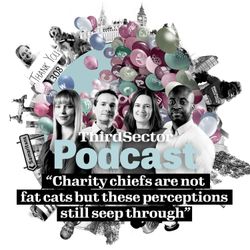
Sector salaries, City & Guilds pay-outs and CIC complaints
22:25|Lucinda Rouse is joined by Third Sector colleagues Emily Harle, Dami Adewale and Andy Ricketts to reflect on three significant sector stories from the past month.Dami recounts the circumstances surrounding a regulatory inquiry into the sale of City and Guilds’ commercial arm to a Greek-owned certification company.Andy provides his take on the findings of Third Sector’s recent Charity Pay Study, which identifies the sector’s top earners. And Emily assesses the implications of a growing number of complaints about street fundraisers from community interest companies for the reputation of charitable fundraisers more broadly.Tell us what you think of the Third Sector Podcast! Please take five minutes to let us know how we can bring you the most relevant, useful content. To fill in the survey, click here.
What charities can learn from the Salt Path exposé
22:08|Lucinda Rouse and Emily Harle are joined by Chloe Hadjimatheou, narrative editor at the Observer, who conducted an award-winning exposé of the main characters in the bestselling memoir The Salt Path.Chloe details the steps she took to interrogate some of the assertions made in the book after receiving a tip-off, including the circumstances of an apparent terminal diagnosis.She suggests ways in which charity leaders can work to uncover the truth when claims surrounding prospective celebrity ambassadors seem out of the ordinary, but stresses the importance of approaching the people in question in the first instance. Tell us what you think of the Third Sector Podcast! Please take five minutes to let us know how we can bring you the most relevant, useful content. To fill in the survey, click here.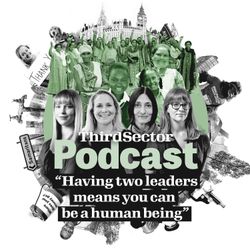
Why two chief executives can be better than one
18:11|Emily Harle and Emily Burt discuss snippets from a recent interview with Hannah Bond and Taahra Ghazi, the new co-chief executives of ActionAid UK.Hannah speaks of the value of a co-chief executive model in supporting feminist leadership and ensuring the best possible decisions are made for an organisation.Taahra acknowledges the loneliness encountered by many single chief executives and describes the co-chief model as a way of preventing burnout.She also talks about the charity’s anti-racism work, which has included the formation of a dedicated decolonisation unit.Tell us what you think of the Third Sector Podcast! Please take five minutes to let us know how we can bring you the most relevant, useful content. To fill in the survey, click here.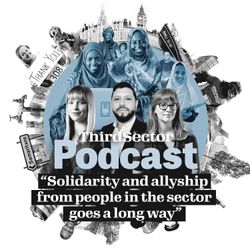
How Islamic Relief UK is responding to Islamophobia
34:45|Emily Burt and Emily Harle are joined by Zia Salik, interim director of Islamic Relief UK, to talk about the rising levels of Islamophobia and racism targeting the charity.Zia describes the measures being taken to support staff in the face of growing online and face-to-face hostility, and the need to plan for an increased risk of attacks during the month of Ramadan.He stresses the need for organisations and people in positions of power to take a public stand against racism and Islamophobia, as well as the value of solidarity and allyship from others in the sector. Tell us what you think of the Third Sector Podcast! Please take five minutes to let us know how we can bring you the most relevant, useful content. To fill in the survey, click here.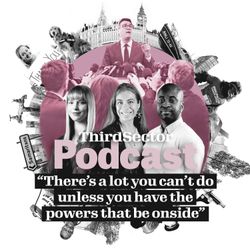
Engaging civil servants and politicians to further your charitable mission
34:15|Emily Harle and Dami Adewale are joined by Madeleine Jennings, head of policy and communications at the Local Trust.Madeleine describes how her team has worked to translate lessons learned from the Local Trust’s ‘Big Local’ programme into actionable government policy. She stresses the importance of forming relationships with civil servants as well as big-name elected representatives, and explains why it is necessary to identify and provide information that is useful to officials.She also describes the logistical steps to securing and facilitating a project visit by a senior government representative. Tell us what you think of the Third Sector Podcast! Please take five minutes to let us know how we can bring you the most relevant, useful content. To fill in the survey, click here.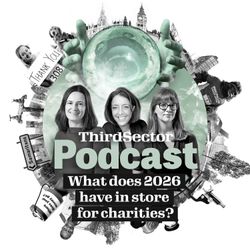
What does 2026 have in store for charities?
40:45|Lucinda Rouse and Emily Burt are joined by Kate Lee, chief executive of the National Council for Voluntary Organisations, to discuss some of the issues facing the voluntary sector in 2026.These include ensuring financial sustainability and the role of civil society in a world of uncertainty in the face of some big existential questions.Kate also shares her reasons to be optimistic, including the next generation of sector leaders coming up and a growing trend of interrogating impact data to improve organisational efficiency.Register for the free Pounds & Purpose summit here.Tell us what you think of the Third Sector Podcast! Please take five minutes to let us know how we can bring you the most relevant, useful content. To fill in the survey, click here.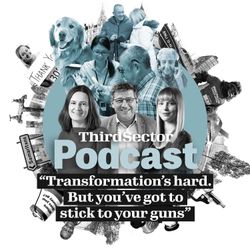
How the RNIB has navigated a restructure
18:30|Lucinda Rouse and Emily Harle discuss snippets from a recent interview Emily conducted with Matt Stringer, chief executive of the Royal National Institute of Blind People.Matt provides insight into the RNIB’s transformation programme, which concluded in April, and shares his lessons learned from a significant restructure.He reflects on the differences between charity leadership and his previous work in corporate retail and gives his reasons for leaving the organisation this month.Tell us what you think of the Third Sector Podcast! Please take five minutes to let us know how we can bring you the most relevant, useful content. To fill in the survey, click here.